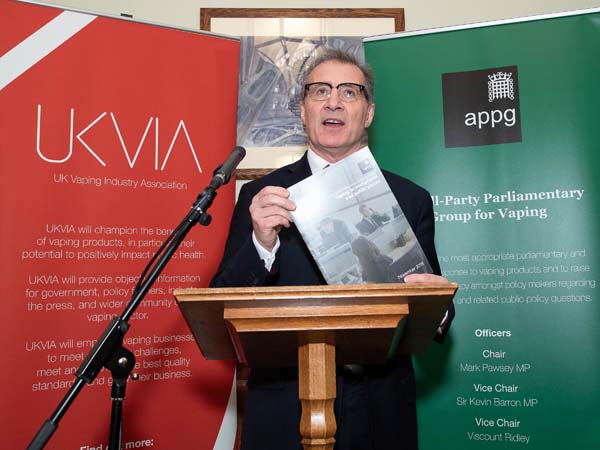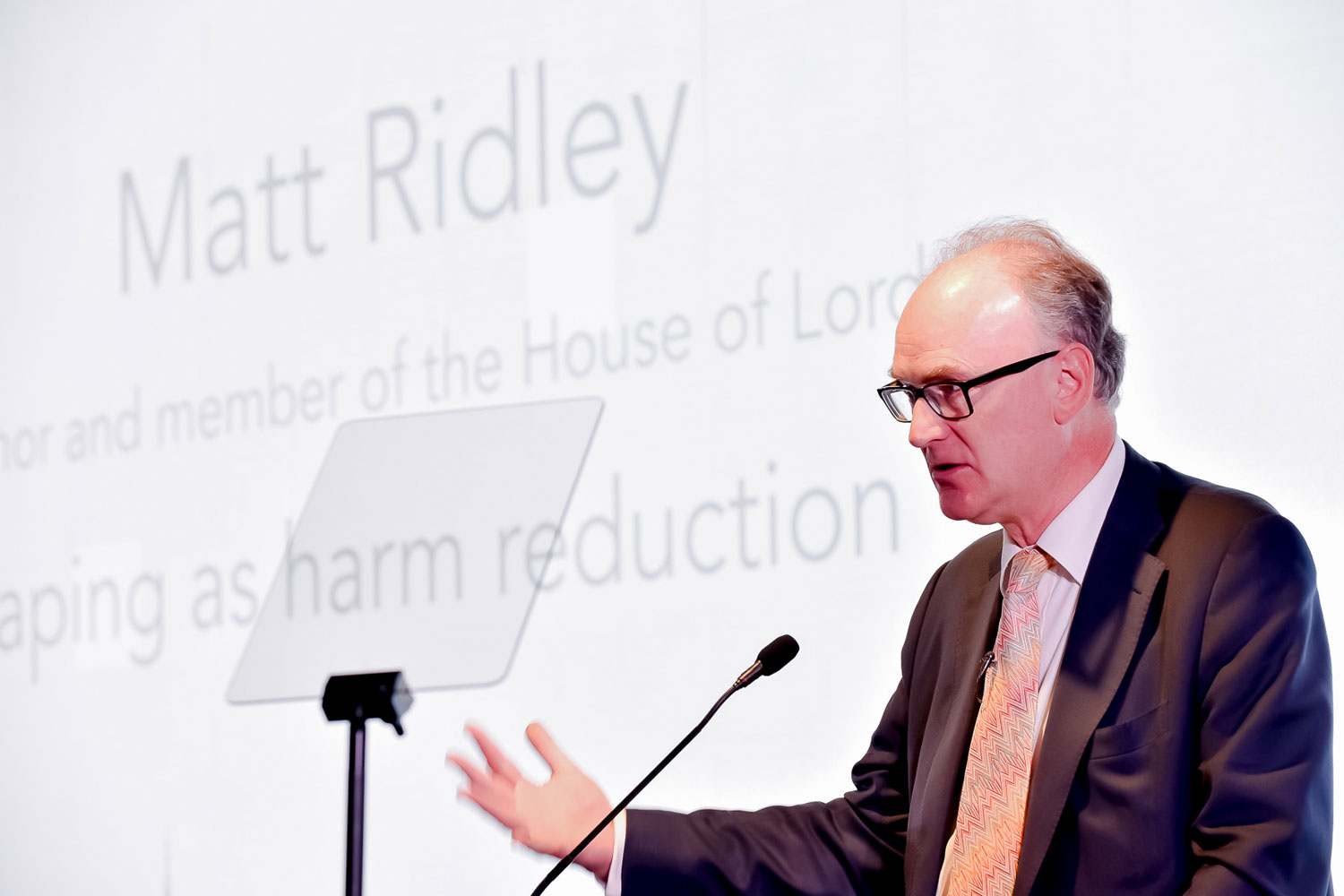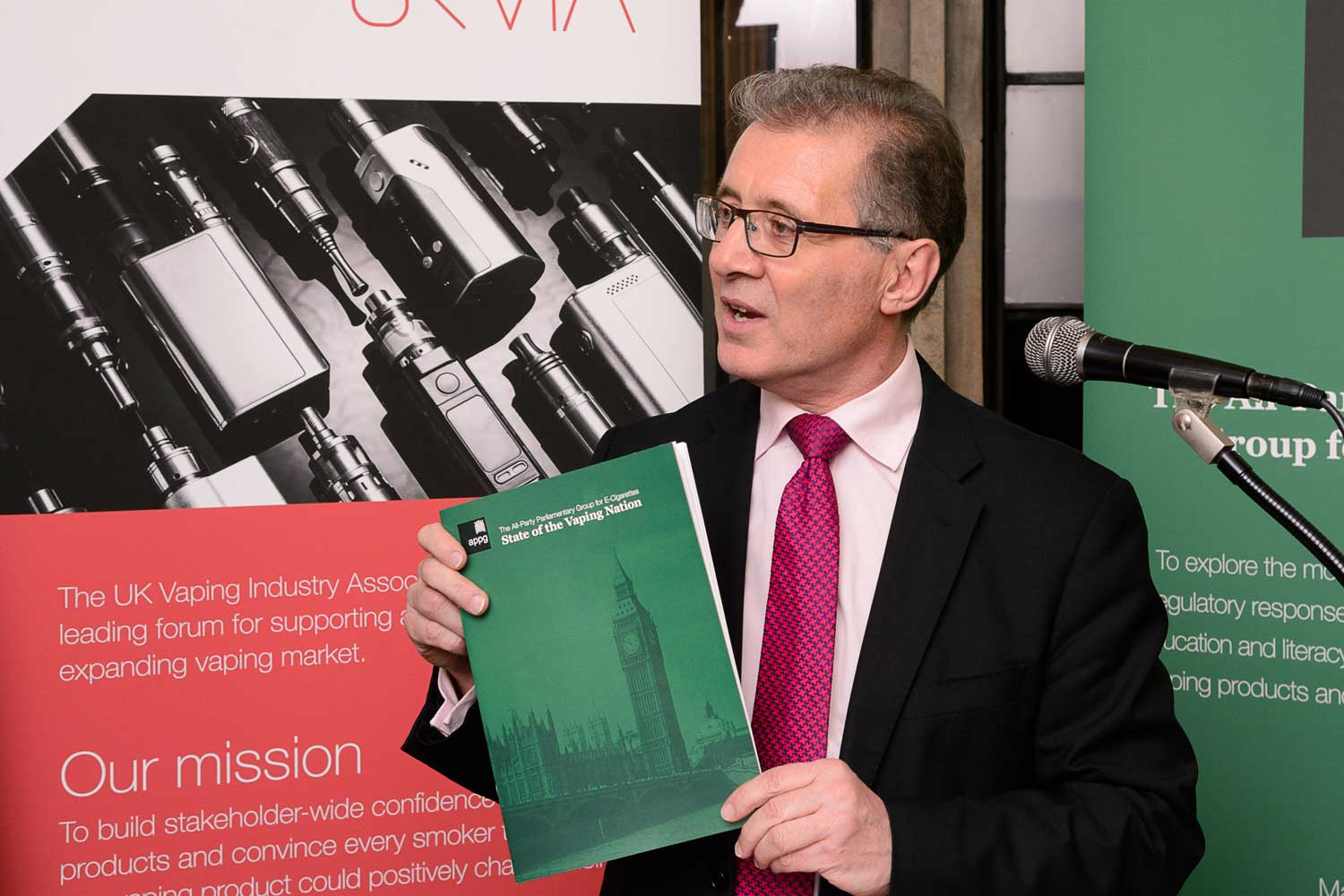
In a report released today March 31, the U.K. All-Party Parliamentary Group (APPG) on Vaping has called upon the government to make the most of Brexit by challenging the World Health Organization’s (WHO) opposition to vaping at the upcoming Framework Convention on Tobacco Control (FCTC) Conference of Parties (COP).
The call follows a four-month Inquiry into the FCTC by the APPG which investigated the FCTC’s history, governance and approach to evidence-based decision-making. It was prompted by the WHO encouraging and applauding bans on vaping.
At a time when the U.K. government has set an ambitious target to make England smoke-free by 2030, and Public Health England has asserted vaping is at least 95 percent less harmful than smoking, the members of the House of Commons and the House of Lords wanted to ensure the WHO doesn’t turn its back on the lives of the 1 billion people around the world who still smoke, including the 7 million in the U.K.
The parliamentarians—which included Viscount Matt Ridley, a vocal advocate for reduced harm alternatives—have called on the government to consider “dramatically scaling back our funding” if they don’t see a change in the approach from the WHO with the FCTC better reflecting the U.K.’s national interests.
The main recommendations from the report include:
- Ensuring the WHO returns to the founding principle of the Treaty which includes harm reduction.
- Restricting any decision to ban vaping and other reduced risk alternatives to smoking.
- Sending experts and consumers to sit alongside the Department of Health & Social Care officials at the multilateral event.
- Establishing a Working Group to look at the science and evidence for new and emerging products.
- Ensuring openness and transparency instead of secretive decision making.

If the WHO continue to pursue an agenda-driven approach to ban less harmful alternatives to smoking, then the U.K. should consider dramatically scaling back our funding.
Viscount Matt Ridley
The inquiry heard evidence from Clive Bates, former director of anti-smoking group ASH, as well Professor Lynne Dawkins from the London South Bank University and consumer groups the New Nicotine Alliance and We Vape, among others.
They called for the delegation of departmental health officials, diplomats and activists usually sent to these events to be strengthened with experts who have real world experience, and even former smokers who can attest to the benefits of vaping and other reduced risk products. It was strongly felt that the voice of the consumer has been missing in these debates so far, and by defending the strong story the U.K has to tell at home, the government would be putting the marker down for “Global Britain” abroad.
Now that the U.K. has left the EU, the U.K. delegation is no longer bound to a common European position on tobacco and nicotine policy. The COP9 meeting would be one of the first opportunities for the U.K. to take a stand at a UN forum.
We call on the government to defend the U.K. approach, challenge the WHO to stub out their ban on vaping, and help return the FCTC to its founding pillar of harm reduction.
Mark Pawsey, chair of the APPG for Vaping

The MPs called for coalitions to be built with like-minded countries that have embraced tobacco harm reduction and have their own good stories to tell. At previous COP meetings, member states have often been afraid to speak up, but the inquiry encouraged the U.K. government to stand firm in defending its strong domestic position, even if the WHO continues with its prohibitionist approach.
“There is no doubt that the WHO has developed a negative stance in relation to vaping over recent years,” said Mark Pawsey, member of parliament for rugby and chair of the APPG for Vaping. “We wanted to evaluate whether it remained fit for purpose in an evolved landscape where new technology has enabled new harm reduction strategies.
“One of the founding pillars of the treaty the U.K. signed up to nearly 20 years ago was that of harm reduction. If the WHO are opposed to adhering to this and continue to pursue an agenda-driven approach to ban less harmful alternatives to smoking, then the U.K. should consider dramatically scaling back our funding.
“At the FCTC COP9 the U.K. has a unique opportunity to champion its progressive, successful and evidence-based, domestic policies on the global stage. We are a world leader in tobacco harm reduction, and we call on the government to defend the U.K. approach, challenge the WHO to stub out their ban on vaping, and help return the FCTC to its founding pillar of harm reduction.”
The APPG has written to Jo Churchill MP, the Public Health Minister at the Department of Health & Social Care with its findings and has requested a meeting to discuss its recommendations.
This is the first of two inquiries the APPG for Vaping is undertaking this year. Its second—looking at how the U.K. can diverge from EU rules to further the U.K.’s chances of reaching the smoke-free 2030 goal—is set to launch imminently.

